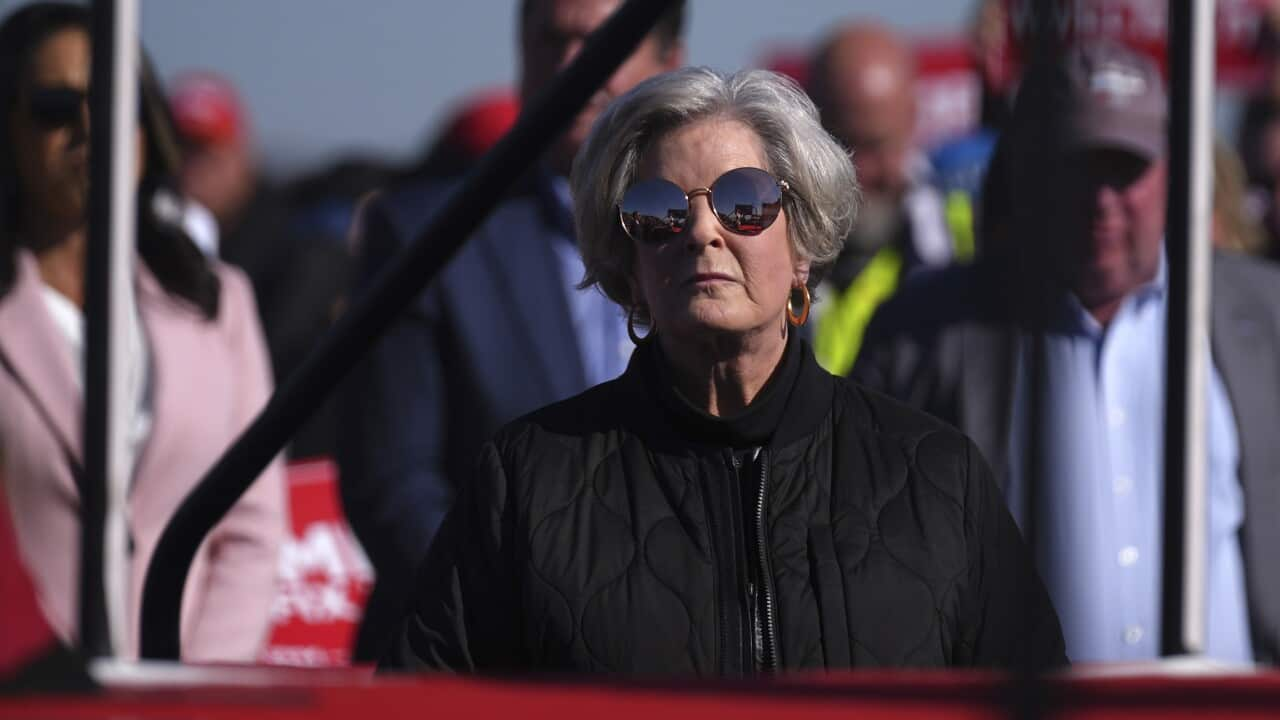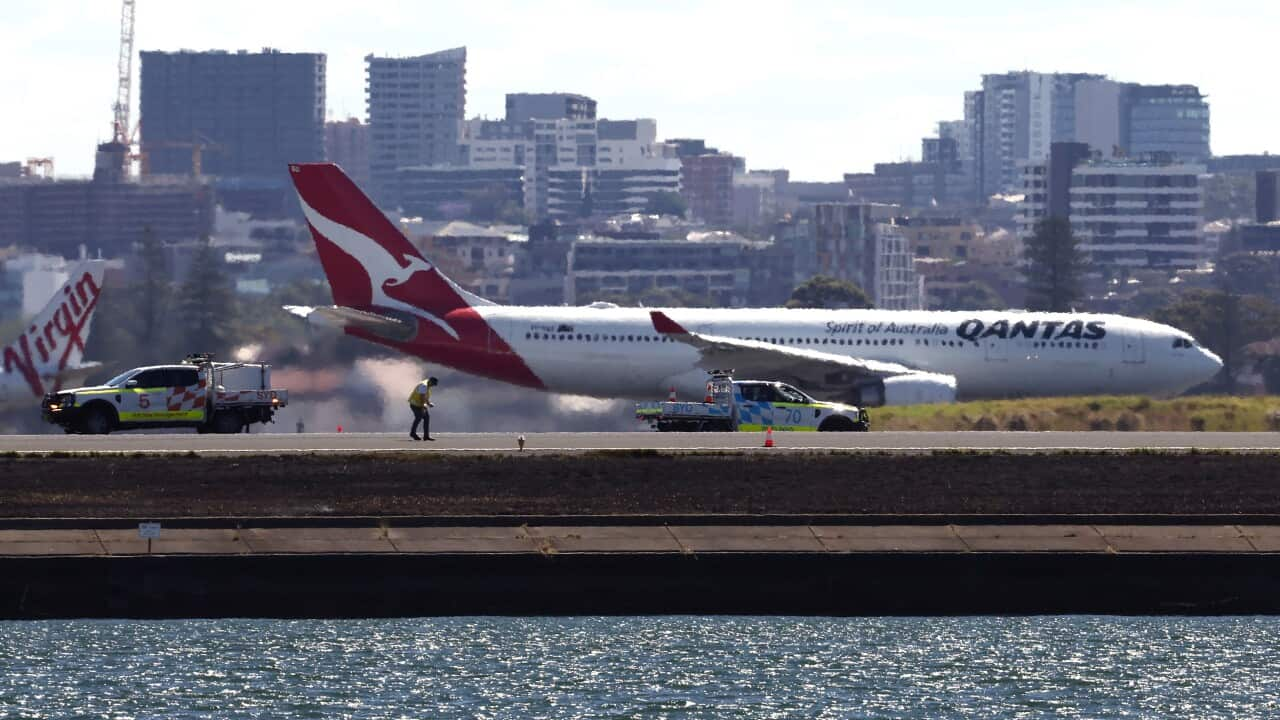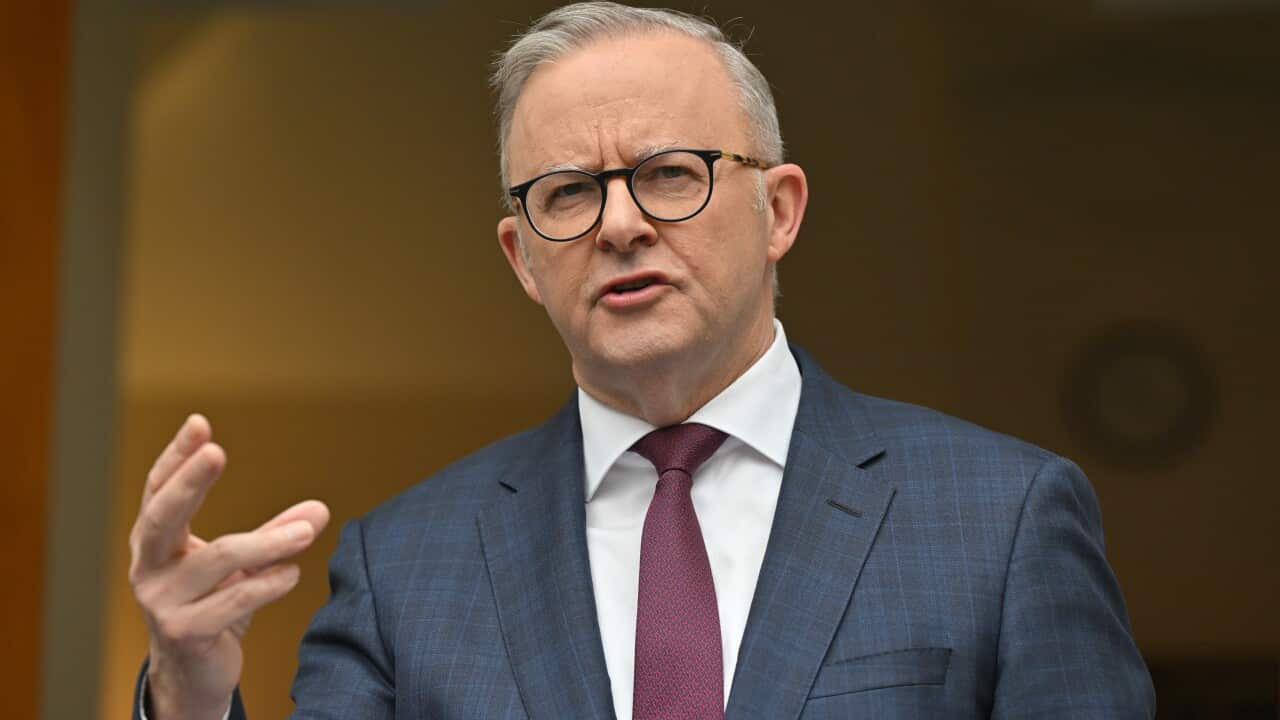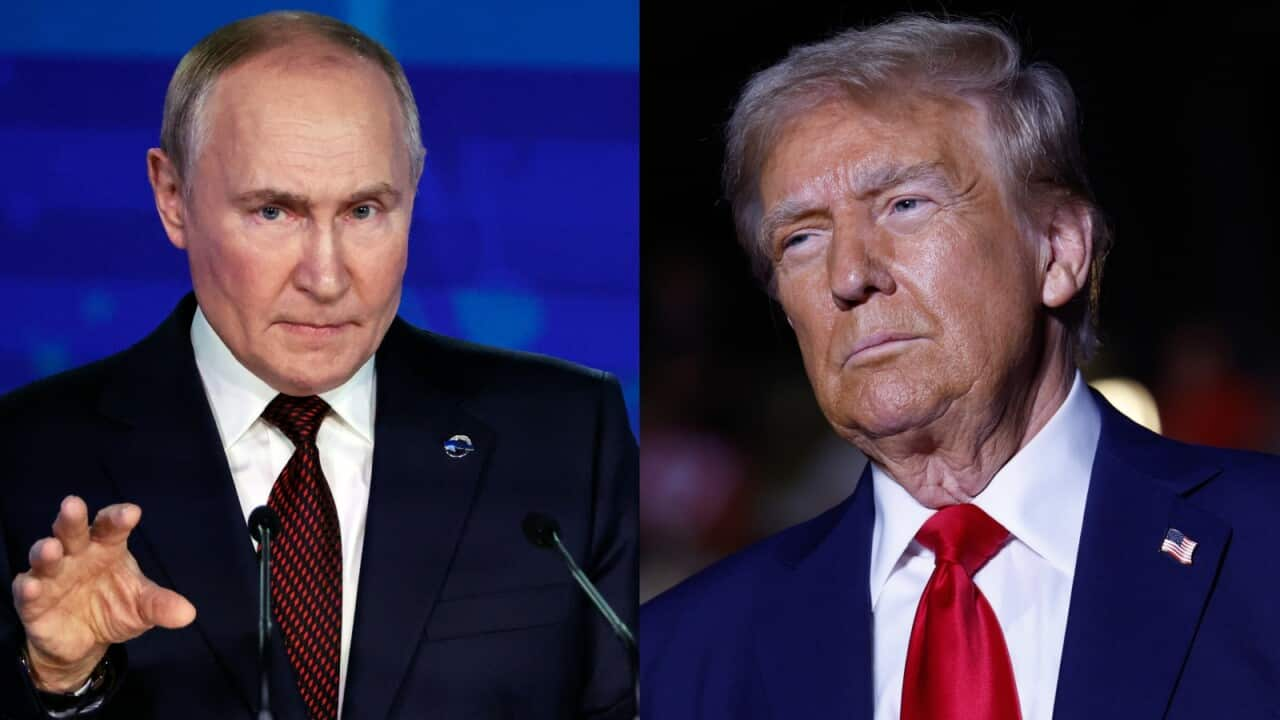United States President-elect Donald Trump has announced that Susie Wiles will be the chief of staff of his administration when he takes office in January.
“Susie Wiles just helped me achieve one of the greatest political victories in American history, and was an integral part of both my 2016 and 2020 successful campaigns,” Trump said in a statement.
“Susie is tough, smart, innovative and is universally admired and respected.”
Trump mentioned Wiles, a 67-year-old grandmother from New Jersey, seven times during on Wednesday while expressing gratitude to his staff.
“Let me also express my tremendous appreciation for Susie and Chris —the job you did. Come, Susie,” Trump said.
“Susie likes to stay in the back, let me tell you. We call her the ‘Ice Maiden’.”

Described by Politico as Donald Trump’s ‘most important adviser’, Susie Wiles has spent several decades working in politics. Source: AFP / Jim Watson via Getty
What does a chief of staff do?
Successful chiefs of staff serve as the president’s confidant, help execute a president’s agenda and balance competing political and policy priorities.
They also tend to serve as gatekeepers, helping determine whom the president spends his time with and whom he speaks to — an effort Trump chafed under inside the White House.
Wiles’ hire is Trump’s first major decision as president-elect and one that could be a defining test of his incoming administration, as he must quickly build the team that will help run the massive federal government after he takes office on 20 January.
Wiles does not bring government experience to the role but has a close relationship with the president-elect.
Trump went through four chiefs of staff — including one who served in an acting capacity for a year — during his first administration, part of a record-setting personnel churn in his administration.
Here’s what to know about Susan Summerall Wiles.
From Ronald Reagan to Donald Trump’s campaign
Wiles started her political career in 1979 as an assistant for Jack Kemp, a member of the Republican Party. A year later, she joined Ronald Reagan’s campaign on his way to get elected as the 40th US president.
Her career peak dates back to 2010, when, in just seven months, she helped Rick Scott, a businessman with little political experience, win Florida’s gubernatorial election.
Scott was known to be an “outsider” during that time.
According to Curt Anderson, a top strategist on the Scott campaign, before the 2010 election, Republican operatives had warned Wiles, telling her, ‘You’ll regret this, and you’ll never work in politics again’.
In 2015, during the Republican presidential primary, she first met Trump, and a year later, she became co-chair of Trump’s campaign in Florida. Trump won the state by 1.6 per cent over Hillary Clinton that year.
Two years later, she was appointed to lead Ron DeSantis’ campaign for governor elections in Florida. DeSantis described her as “the best in the business” in his victory speech.
Some controversy surrounding her actions led to her dismissal in 2019.
‘Most feared and least known political operative’
Despite her political successes in past decades, Wiles is rarely seen in the media.
Politico, an American political magazine, has described Wiles as “the most feared and least known political operative in America”.
“Her influence on political events, to many who know what they’re watching, is as obvious as it is invisible,” Politico wrote.
“It’s a shock when she shows up in pictures. Even then, it is almost always in the background. She speaks on the record hardly ever, and she speaks about herself even less.”
In recent years, Wiles has held various roles working for Trump.
Before the presidential elections, she was appointed as Trump’s de facto co-campaign manager, and some attribute Trump’s success, particularly in Florida, to her actions.
With 99 per cent of the votes counted, Trump won the state with more than 56 per cent of the votes.
In June, the New York Post, an American conservative newspaper, described Wiles as a “relatively unknown operative” who is Trump’s “secret weapon” for the elections.
With reporting by the Associated Press via the Australian Associated Press.













